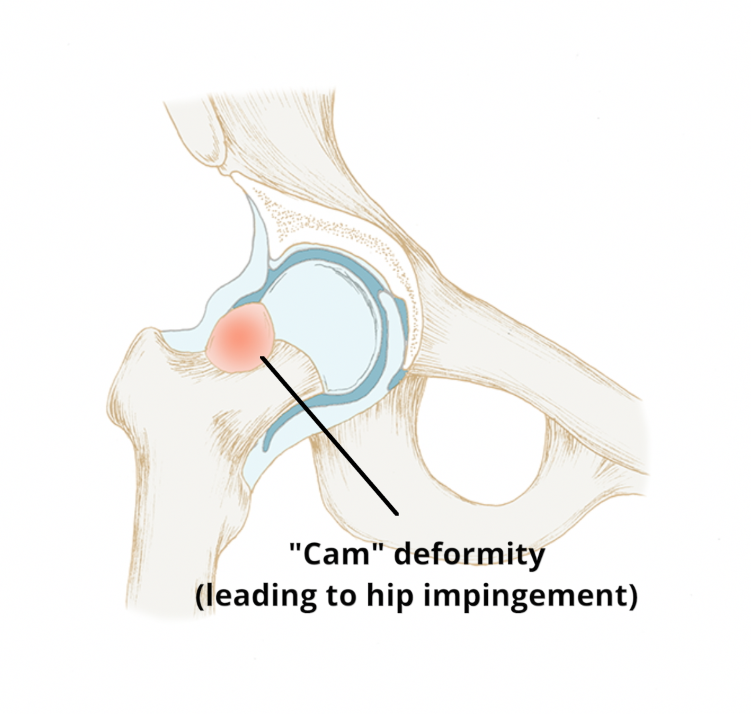
Pain on movement in the groin or hip area can be caused by hip impingement.
Hip impingement, also known as femoral acetabular impingement (FAI). It describes a condition in which the ball part of the joint (femoral head and neck) does not perfectly match the socket part of the joint (acetabulum). This leads to a pinching ( impingement) and restriction of movement as the hip joint is flexed and rotated.
Hip impingements are sometimes referred to as:
- a cam impingement, which refers to a development of a ridge of bone on the femoral head and neck
- a pincer impingement which refers to a deepening of the acetabulum
- or a labral tear which refers to a tear in the soft tissue which surrounds the acetabulum.
The majority of cases have a component of all three.
Advances in our understanding of and treatment of hip impingement have come relatively recently. As such, we still do not have any long-term data to support the exact causes of the condition. However, several possibilities are under investigation:
- Genetic shape of the hip joint (morphology)
- Participating in sports involving twisting or turning on the hip
- Poor lower limb alignment (biomechanics)
How is hip impingement treated?
Non-surgical management
Symptoms of hip impingement can be managed effectively by non-invasive measures as described below. The most effective are modifications to sitting posture and sporting activities (if applicable).
Exercises
Regular exercises to maintain flexibility and strength to the affected hip joint.
Modifying seating positions
Raising your seat height and slightly reclining the back-rest will open your hip angle and reduce the extent of pinching at the font of the hip joints
Surgical management
Hip arthroscopy (keyhole) surgery can be considered for individuals whose symptoms are significantly limiting quality of life and sporting activities and:
-
- have trialled a course of non-surgical management without success
-
- have clear evidence of the cause of the impingement symptoms on an x-ray or other scan
-
- have no significant osteoarthritis (age-related changes) of the hip
-
- have a suitable Body Mass Index (BMI)You may be asked to complete a questionnaire called an Oxford Hip score. This can help the clinician assess the impact of your symptoms which can be useful in assessing suitability for surgery. Please note that there is no current evidence to indicate that undergoing a hip arthroscopy will reduce the risk of developing hip osteoarthritis in the future.